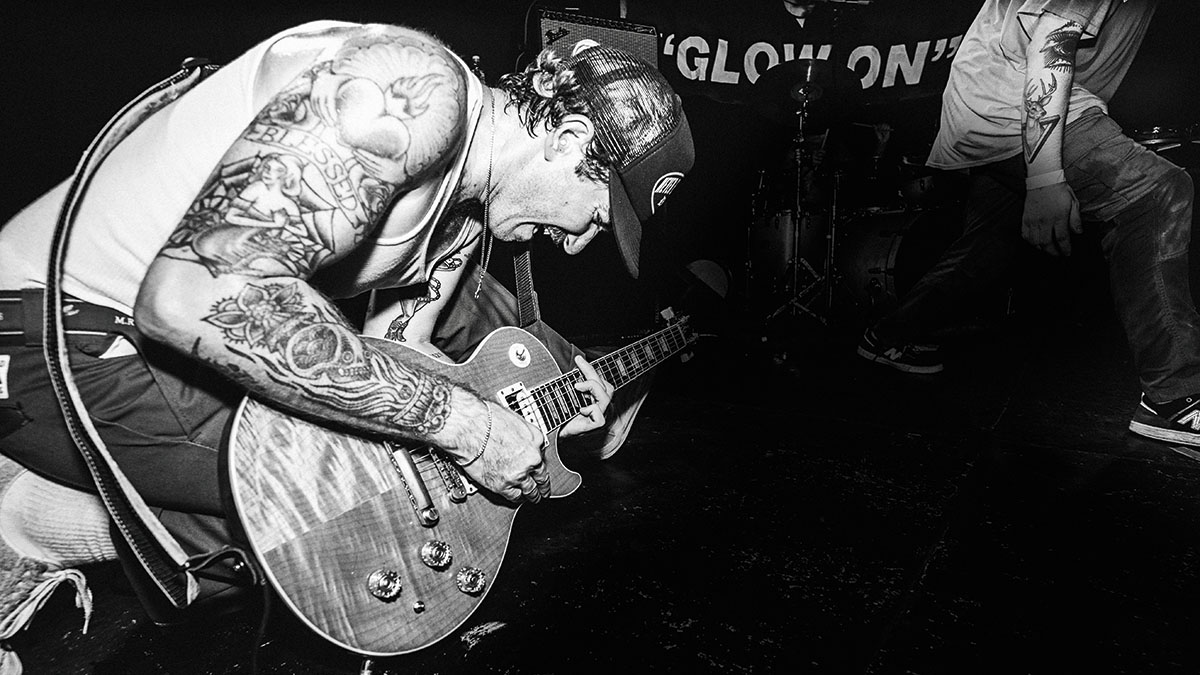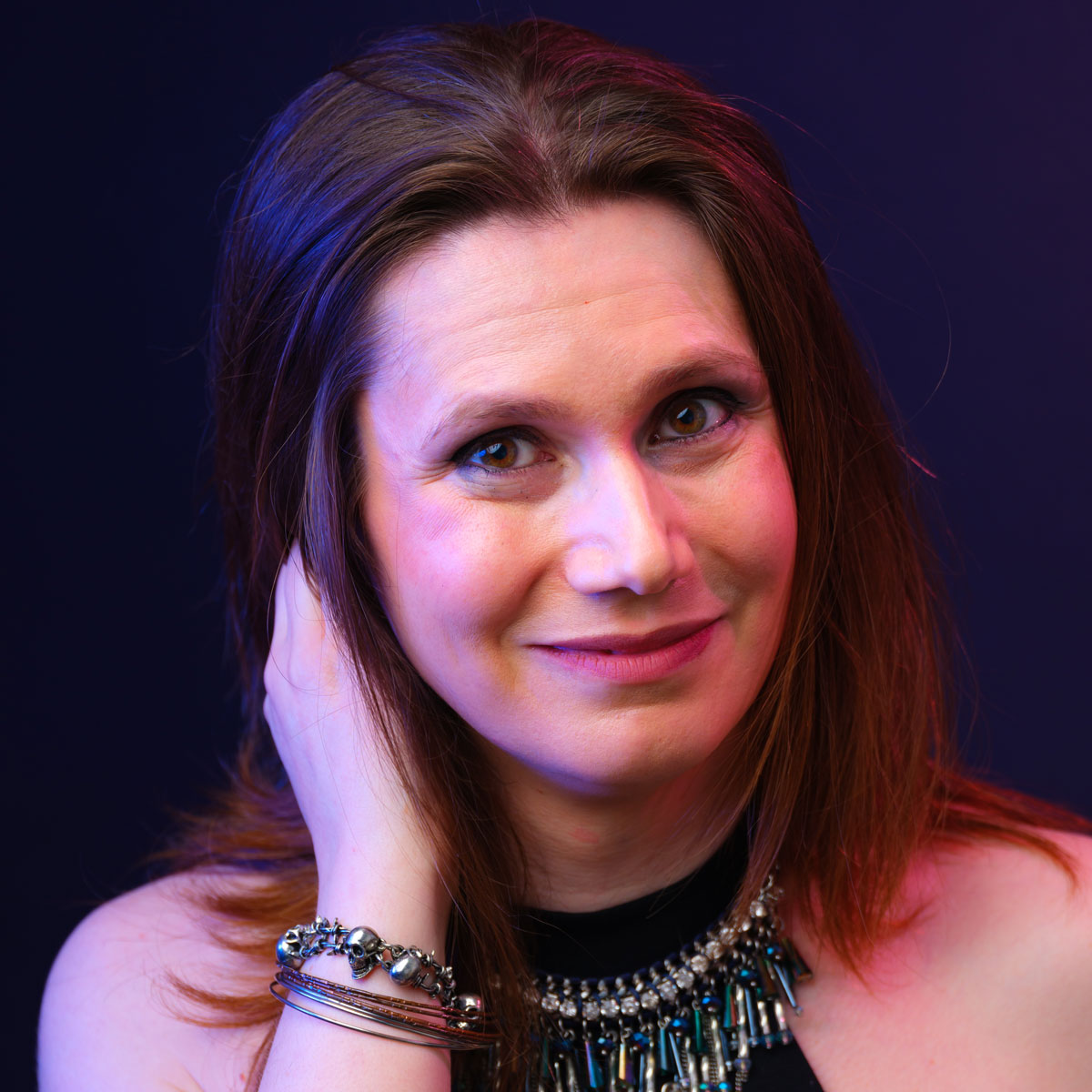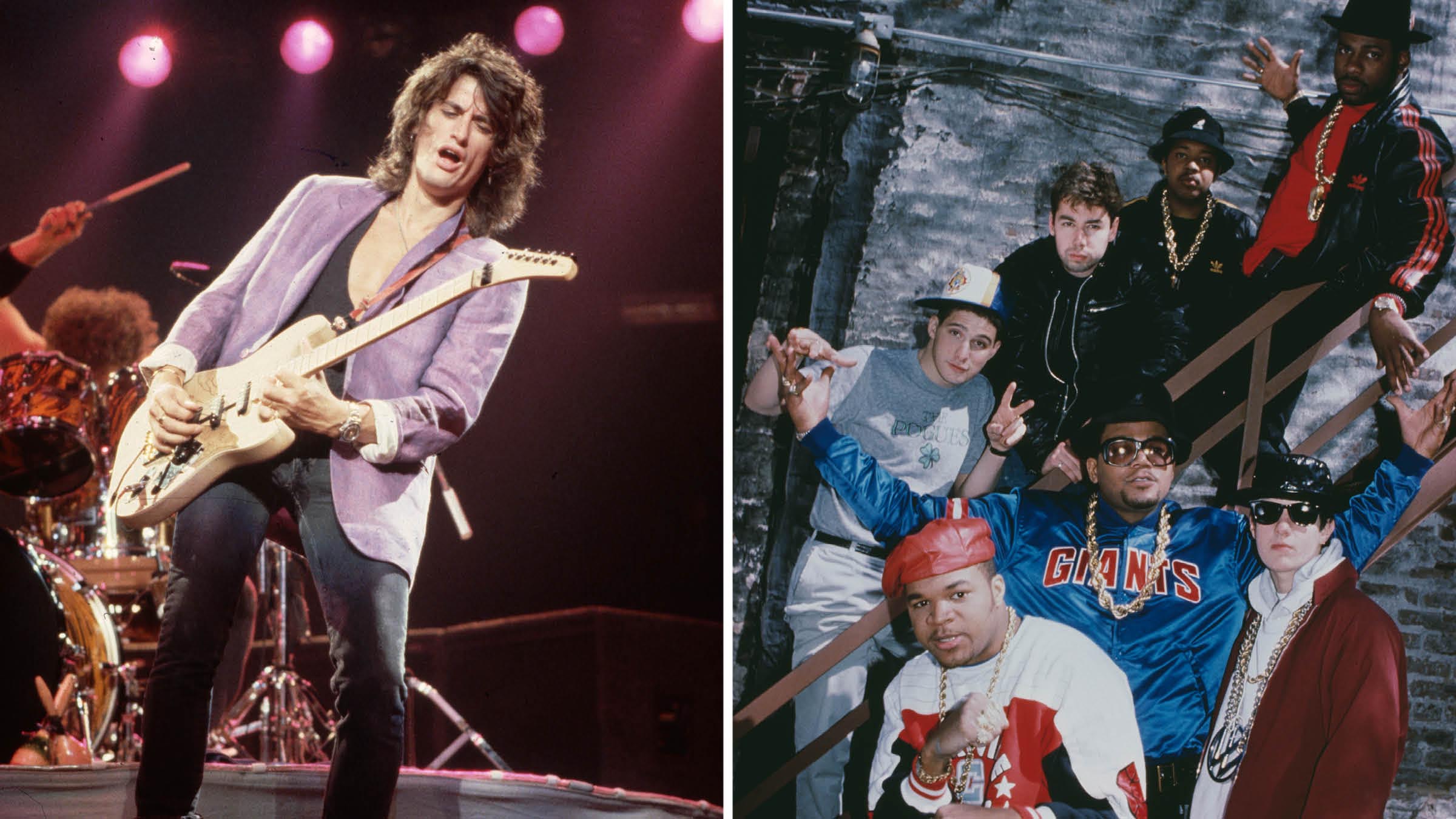Turnstile’s Pat McCrory: “A lot of what we’re trying to do is capture that perfect take – we go into it as hard and fast as we can”
Hardcore heroes Turnstile are poised to be one of 2022's breakout bands. Here McCrory discusses their return to the stage – and how to experiment without losing your edge…

All the latest guitar news, interviews, lessons, reviews, deals and more, direct to your inbox!
You are now subscribed
Your newsletter sign-up was successful
It’s February 2022, and Turnstile are thrilled to be back in the UK. When Baltimore’s hardcore heroes last played London in two years ago, they didn’t know when – or if – they’d be back.
As guitarist Pat McCrory recalls, “The world was shutting down. We had to play a London show and then fly home instead of the rest of the tour. We all caught Covid on the way home, and we’re like, ‘This might be the last show in London that we play.’”
To everyone’s relief, Turnstile have come back harder than ever, and Pat is buzzing: “We just played the Roundhouse and Nottingham Rock City, and the shows have just been purely magic.”
The quintet – Pat McCrory plus vocalist Brendan Yates, lead guitarist Brady Ebert, bassist ‘Freaky’ Franz Lyons and drummer Daniel Fang – are known for leaving everything on the stage, and the return to gigging was a rude shock to their bodies.
“Most of us are pretty active, playing sports or skateboarding or lifting weights,” Pat says. “Everybody’s got energy to burn so we were like, ‘Yeah, we’ll be good!’ First show, my neck was so twerked out of place I couldn’t look up for two days. We came back and we felt like we were 20 years older. We planned a bunch of one-off shows to knock the rust off.
“The first one we did was in Baltimore. We were all super rusty and everybody’s super emotional. We sucked so bad but it was awesome! We worked with those little shows and between ourselves we’re like, ‘Yo, get those neck stretches in! Stretch your hamstrings! Let’s go!’”
The first one-off show was a hometown gig in Baltimore, where Turnstile’s egalitarian ethic made for one hell of an atmosphere. As Pat explains: “It’s like become this very familial feeling when we play. I feel like I know everybody. The person who makes coffee down the street from my house is at the show.
All the latest guitar news, interviews, lessons, reviews, deals and more, direct to your inbox!
“I’m like, ‘I see you every day! This is so sick for us to share this exciting experience!’ When we play this outdoor show it’s free, so anybody from the neighborhood can go to the show. It felt like a communal gathering rather than like, ‘Hey, come watch us play!’”
Limber once more, Turnstile’s UK return has been helped by the reception to their latest album, Glow On, their strongest set of songs to date. There’s a pop sheen and shoutable choruses, and the band expertly threads the needle by sounding raw enough to stay true to their roots even amid producer Mike Elizondo’s enormous sonics.
Pat reveals the secret: “You can get very meticulous and break down the riffs, really punch in and punch out for a lot of little spots, but a lot of what we are trying to do is capture that perfect take. The beginning of Don’t Play, for example, where it’s super-fast, we thought ‘Do we speed this up after recording at a slower tempo? No, let’s just go into it as hard and fast as we can.’
“There wasn’t any punching in. Where we slumped up a little bit, it was about going back, flash through the whole thing again to get the whole clip. I think that really helps make things feel a little more natural and adds the live punk aesthetic to a record.”
The record also has an organic feel thanks to Pat’s differing approach from lead guitarist Brady Ebert. “I am a little sloppier and a little more rhythmic,” Pat says. “I can be sharp and technical, but the little flares I’m trying to add bring a live feel to it.
“Brady’s so much more locked in when it comes to the real ins and outs of the riff. Brady will do a track where he’s blasting through and playing every little tiny thing perfectly, and I come in and do a track that’s a little more imperfect to add the live feel to it.”
The guitar tones on Glow On are awesome: fat and crunchy, with tons of clarity. The band made a conscious effort to reinvent their guitar sound for this album, while still keeping a connection to their old tones.
As always, the core comes from Brady’s Peavey 5150, and Pat tried many combinations to complement it: “We started experimenting with a Kemper, just trying everything under the sun to remould the sound but still have it be the same as before.”
Pat eventually landed on a Gretsch Duo Jet as the guitar of choice for much of the record. “I wanted to get more body and soul out of the high end of a riff, like on Don’t Play where I’m using full chords and really emphasizing those high strings,” he says. “It had a really nice touch on the whammy that wasn’t as metal.
“The Gretsch was part of taking the 5150 out of the spotlight. No matter what, when you play an Ibanez through a 5150 you’re going to get the hardest-sounding thing. So when we add in the Gretsch going through a Kemper that’s modelling a Marshall JCM800, it added that rock tone that’s a little eased off but still very thick. It was a nice way to accent the heaviness and the grittiness of an Ibanez going through a 5150.”
Pedals were minimal – you can hear Brady’s Boss Super Chorus and Pat’s MXR Carbon Copy at times – but the most spectacular effect was a Mike Elizondo gadget.
“We had this really weird thing,” Pat says, “And Mike Elizondo is the only person I know that could have it. It was like a tape machine that was not made for delay but he turned it into a tape delay.
“We’d play the song through it and every time the delay was different. It wasn’t necessarily at a certain speed; it had a different swing to it every time. It was like a ghostly weird machine. We ran everything through it that really required that airy, ethereal space sound.
“It looked like it was from 1940. We had to run Alien Love Call front to back every time because it was going through this tape machine and it was different every time. You couldn’t punch in because it would sound crazy.”
Live, Pat uses his 2015 Gibson Les Paul Classic into an Orange Rockerverb 50 MkIII, with limited effects.
“The touring rig right now is pretty simple,” he says. “I keep the MXR Carbon Copy – that’s the staple I can’t play without. I keep a Noise Suppressor in there, and I have two different [Fulltone] OCDs. I’ve been keeping that with me just in case I want to boost part of the song. That’s all I’m running right now. I try to keep it simple.” His backup guitar is a Gibson Firebird.
Brady, meanwhile, has moved on from the Peavey 5150 to the newer EVH 5150III. “He usually runs the Peavey,” Pat says, “but they’re hard to come by sometimes. You can always catch a 6505 but it’s just a little different. The 5150 is an old amp so they’re hard to get repaired sometimes. He tried the 5150III last year and it was awesome, so we’ve just been sticking with that.”
Pat and Brady’s differing strengths make it easy to pick who plays each part.
“I’m very sloppy and not as technically proficient as he is,” Pat says. “So a song like Alien Love Call or Don’t Play where you can afford to be looser and just wing around a little bit, that’s when we’ll lean in my direction. If it’s a song where it’s gotta be hard, we’re like, ‘Brady take the intro!’ It just kind of works itself out because everybody knows their strengths.”
Glow On is strengthened by contributions from Blood Orange (UK singer/producer Dev Hynes). His appearance on Alien Love Call is a standout, but the song wasn’t written with him in mind.
“We had actually been playing Alien Love Call live for three years,” Pat explains. “It was much shorter; we only had the chorus. We would just play that part as an interlude. We knew that Dev was very down to collaborate. He likes our music and we love his music, so we were like, ‘Let’s leave a couple things open just in case.’
“We had parts written but it was like, ‘Hey, if Dev wants to get on this, let’s see what he can do.’ We were in LA and Dev got in the studio. He had three opportunities to sing on the record and came up with three amazing products that were just magic. We love everything he does, so anything from him was great.”
The dream-pop of Alien Love Call, though, is a departure from the band’s core melodic hardcore sound. Glow On sees them boldly embracing diverse sounds, with Latin American rhythms punctuating the punk-rock riffage. How did Pat develop such a physical style of guitar playing?
You look at a guy that’s just f**king angry and playing fast and hard and not worried about ‘is my form correct?’ and they could be the best guitar player in hardcore
“I never took lessons or learned how to read sheet music. I was playing the songs that I like, so it was a matter of, ‘What do I do to play the song?’ A lot of it was you’re playing with friends and you learn from each other, or you just experience music, like if you think something sounds cool try and play it. You’ll get close, and if you don’t get close, the beauty is you can just dash it out on guitar until it sounds close enough.
“Hardcore is more of a feeling than a very distinct thing. It’s the feeling that you have when you play. You look at a guy that’s just fucking angry and playing fast and hard and not worried about ‘is my form correct?’ and they could be the best guitar player in hardcore. If I had advice, it’s start a band. If you like how something sounds try to play it, and if you can’t keep trying until you can play something close to it and you like how it sounds.
“I wanted to do my own thing but I kept finding it’s super-easy for me to imitate something. Through imitation you realize: wait, I’m not sounding like them because of something. It was just about sitting with it and playing it all the time. It really is a repetition game.
“If you’re playing guitar in your room every day you’ll realize very fast like where the flaw is. If you’re like, ‘I want to do a perfect powerchord,’ if your fingers are a little weak, keep grinding and then in a month you’re like, ‘Wait a minute, now I got it! I can figure this out.’ It’s a grind.”
Everybody is constantly in this creative wheel. You wake up one day and there’s a new riff from Brendan, and Dan will have a whole new method of making noise
Although it’s not an obvious bid for commercial success, Glow On’s strong songs and Turnstile’s energised live shows have critics talking about a move into the mainstream. Turnstile, though, are focused on their art. The band is a constant hive of creativity, so new music is never far away.
“Glow On is still pretty new so we haven’t thought too much about [another] record, but everybody is constantly in this creative wheel,” Pat says. “You wake up one day and there’s a new riff from Brendan, and Dan will have a whole new method of making noise. Everybody’s constantly trying something, so it never can stop.”
- Glow On is out now via Roadrunner.
Jenna writes for Total Guitar and Guitar World, and is the former classic rock columnist for Guitar Techniques. She studied with Guthrie Govan at BIMM, and has taught guitar for 15 years. She's toured in 10 countries and played on a Top 10 album (in Sweden).

